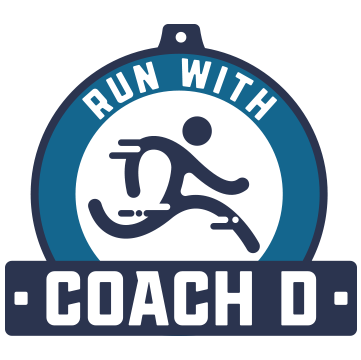Marathon Training: The Most Common Mistakes
Training for a marathon is well…a marathon. A lot can happen between the first day of training and race day. Consistency and smart choices go a long way to getting you there fit and ready to go. In my experience as a coach most runners tend to make pretty similar mistakes; knowing what they are and planning ahead can save you time and optimize your race day experience and results. Avoid these 6 common mistakes in your training:
Set a realistic goal
Be realistic with your current fitness, bandwidth to train, and your body. It won’t be a fun experience if you aim for a sub 4 hour marathon when your PR is a 4:40 and don’t have the time to train for it as you need to. I want any of my athletes to feel challenged and to work for BIG goals…but if you aim too big you might miss out on the joy of your training. No one cares if you run faster or slower, we’ll celebrate you either way. But can you celebrate yourself after months of training and a big race? Well, not if you aim too high.
In other words, be SMART with your goal setting:
Specific
Measurable
Attainable
Realistic
Time Bound
Panicking after a bad workout
This is going to happen to you at multiple points in your training. You’ll be flying high off a string of great workouts, especially in the beginning. But suddenly you’ll streak will end with a tough workout where you just felt…off. Your paces were off the mark, you felt like it was way tougher than last time, you didn’t finish.
I guess the only thing to do now is give up right? WRONG!
You’re going to have tough workouts where things aren’t going to go well. That’s a part of the journey. Every week you train for a marathon you’re asking your body and mind to overcome increasingly difficult challenges. Eventually, you’re going to hit one you can’t overcome that week. But next week you do…it just took some new fitness to do it. Be patient with yourself as you improve and remember if you're not challenged you won’t change>
Sticking to your workout paces
Here’s one of my favorites: you feel good, so you decided that marathon pace is too easy for today. You decide to run 20 sec/mile faster than your planned workout instead. It takes a lot out of you but you pull it off. You’re feeling confident and ready to crush your next marathon knowing you’re fitter than your coach or run test indicated. Then race day comes and you S*** the bed and bonk hard.
This is the biggest problem I see with my athletes and runners in general. Your paces are not meant as a recommendation, they’re planned as a specific stimulus to best meet the goal of your workout. Your paces are specific to you and you alone, if you’re not ready for something faster than you’re just doing damage to your body for no reason but to say you did it. Think of it this way: “Do the least amount of work for the greatest benefit.” You will improve either way, but one way will keep you running healthier, happier, and longer for each and every training season.
Run on a terrain or course that matches your race course
Before you go running the same course (around your house or work), think about what your race course will look like. Is it hilly? Flat? Does it have a lot of turns? Is it in shade or wide open to the sun? Road? Gravel? Trail?
You should be doing at least one run on a similar course to get your body used to what you’ll face. The best way to overcome an obstacle is to prepare for it. On top of that, I highly recommend that your long run workout be your most specific to your course. Why? It’s the workout that’s meant to be the most race specific; face the tough stuff now so it won’t be so tough on race day.
Strength training
I know what some of you are thinking: But Coach D, I’m a runner not a weightlifter. Why do I have to waste any of my running time in the gym?
Because you’re leaving speed, injury prevention, running efficiency, strength, mobility, and much more on the table. I’ve said this in almost every way I can; strength training is the counterbalance to all the activity you do. If you’re not doing it, you’re not balanced.
Not practicing nutrition
You need to practice taking food (Gu’s, Wafers, Gummies, Ect…) and hydration as much as you do your running. You won’t make it through a marathon without it. If you wait until race day, you’ll lose time and calories/electrolytes/hydration when you need it most. Try for 1-2 times a week of bringing your nutrition with you and/or setting up a water bottle on your route and practice taking in your nutrition. It’s tedious but it will be one less thing to worry about doing right on race day.

